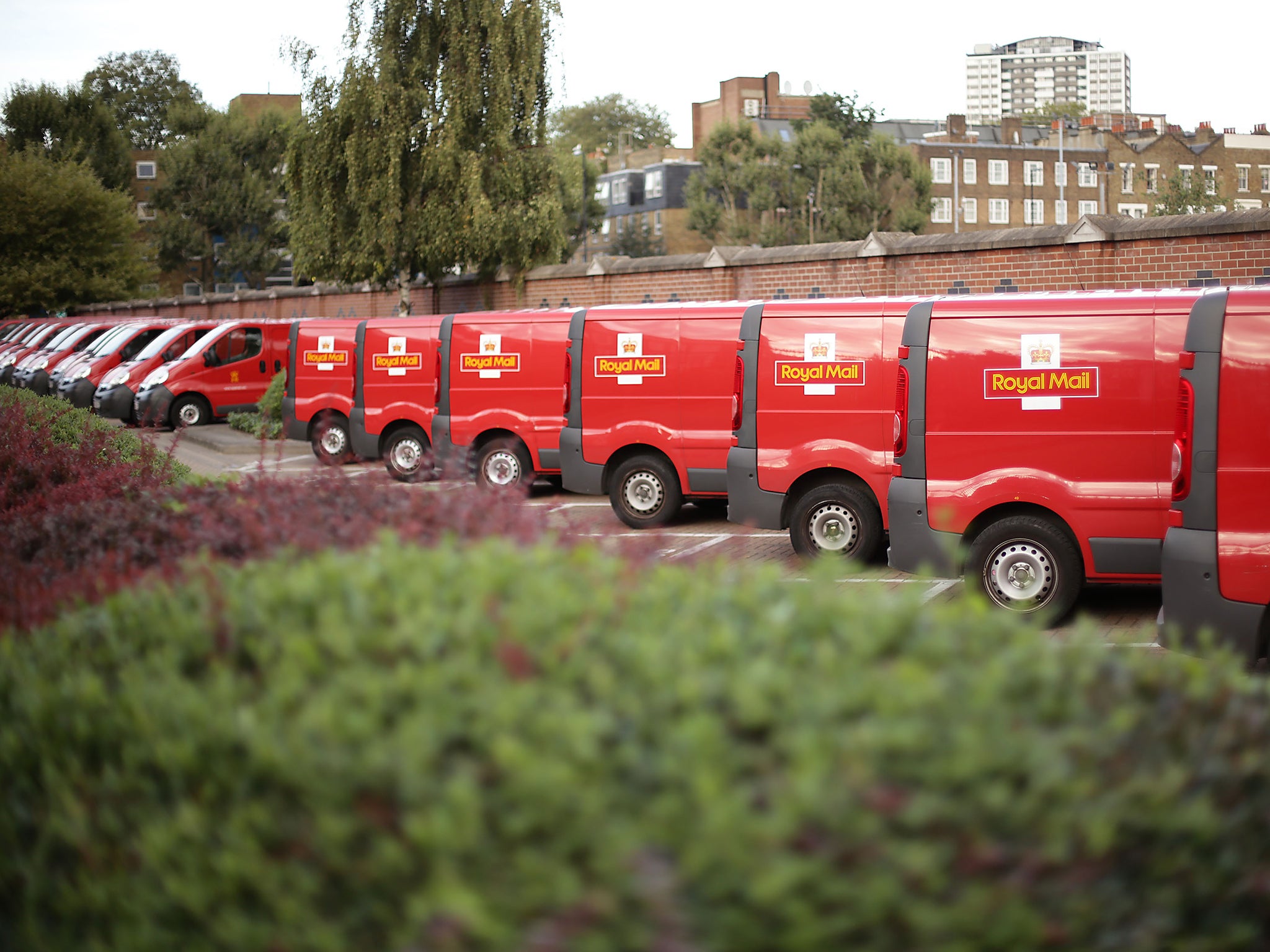Royal Mail shareholders paid over £800m in past four years while services are scaled back
Jeremy Corbyn said the Royal Mail was 'sold off on the cheap' by the Liberal Democrats and Conservatives while in coalition and now 'hundreds of millions are being siphoned off by shareholders'

Your support helps us to tell the story
From reproductive rights to climate change to Big Tech, The Independent is on the ground when the story is developing. Whether it's investigating the financials of Elon Musk's pro-Trump PAC or producing our latest documentary, 'The A Word', which shines a light on the American women fighting for reproductive rights, we know how important it is to parse out the facts from the messaging.
At such a critical moment in US history, we need reporters on the ground. Your donation allows us to keep sending journalists to speak to both sides of the story.
The Independent is trusted by Americans across the entire political spectrum. And unlike many other quality news outlets, we choose not to lock Americans out of our reporting and analysis with paywalls. We believe quality journalism should be available to everyone, paid for by those who can afford it.
Your support makes all the difference.Royal Mail shareholders have been paid over £800m in the past four years while the company scaled back the number of postal workers, delivery offices and planned cuts to pension schemes for employees.
The company – privatised by the coalition government in 2013 – paid out the lucrative dividends of £626m to non-employee private shareholders between October 2013 and the end of the last financial year, according to a Labour analysis.
A further £86m was paid to employee shareholders and the Government received £81m during the two-year privatisation transition.
Responding to the figures, Jeremy Corbyn said the Royal Mail was “sold off on the cheap” by the Liberal Democrats and Conservatives while in coalition and now “hundreds of millions are being siphoned off by shareholders”.
The Labour leader added: “Labour will end this rip off, bring Royal Mail back into public ownership and run it in the interests of the many, not the few.”
Labour MP Helen Hayes has previously claimed that between the privatisation of Royal Mail in October 2013 and May 2017, 142 delivery offices have been closed by the company – around 10 per cent of the total. Ms Hayes added that the company has sold more than £200m worth of property.
Dave Ward, the general secretary of the Communication Workers Union, told the Daily Mirror: “A massive £500,000 a day paid in dividends to mainly hedge funds and city shareholders will sicken the public.
“This money should have been used to modernise Royal Mail giving the public a first-class service alongside protecting post workers’ terms and conditions.
“At a time of school cuts, hospital closures and record use of food banks it is outrageous to see such an abuse of funds which should be in the public hands.”
The figures come after the company won a High Court injection preventing a planned 48-hour strike by postal workers, who were set to protest over pensions and pay.
A Royal Mail spokesperson described the dividends as a “good thing, not a bad thing”, adding: “Our dividend payments have benefited the many Royal Mail people and private investors who own the company. They also benefit the many UK pension funds who have invested in Royal Mail on behalf of UK workers.
“Alongside the legitimate payment of dividends, Royal Mail has invested £1.5bn in the company since privatisation.
“In state ownership, Royal Mail was starved of investment. Royal Mail is one of a few large companies that pay substantially more in pension contributions than dividends. Since privatisation, we have paid £1.4bn into our pension funds and £800m in dividends to shareholders, including colleagues.
“We don’t recognise the figure of 142 delivery offices closing since privatisation. In fact, less than 4 per cent (51) of our delivery offices have closed since then. During that time, letter volumes have declined by around 12 per cent. Royal Mail has by far the largest delivery office network in the UK and that will continue to be the case.”
Join our commenting forum
Join thought-provoking conversations, follow other Independent readers and see their replies
Comments